SUMMARY
This is AI generated summarization, which may have errors. For context, always refer to the full article.
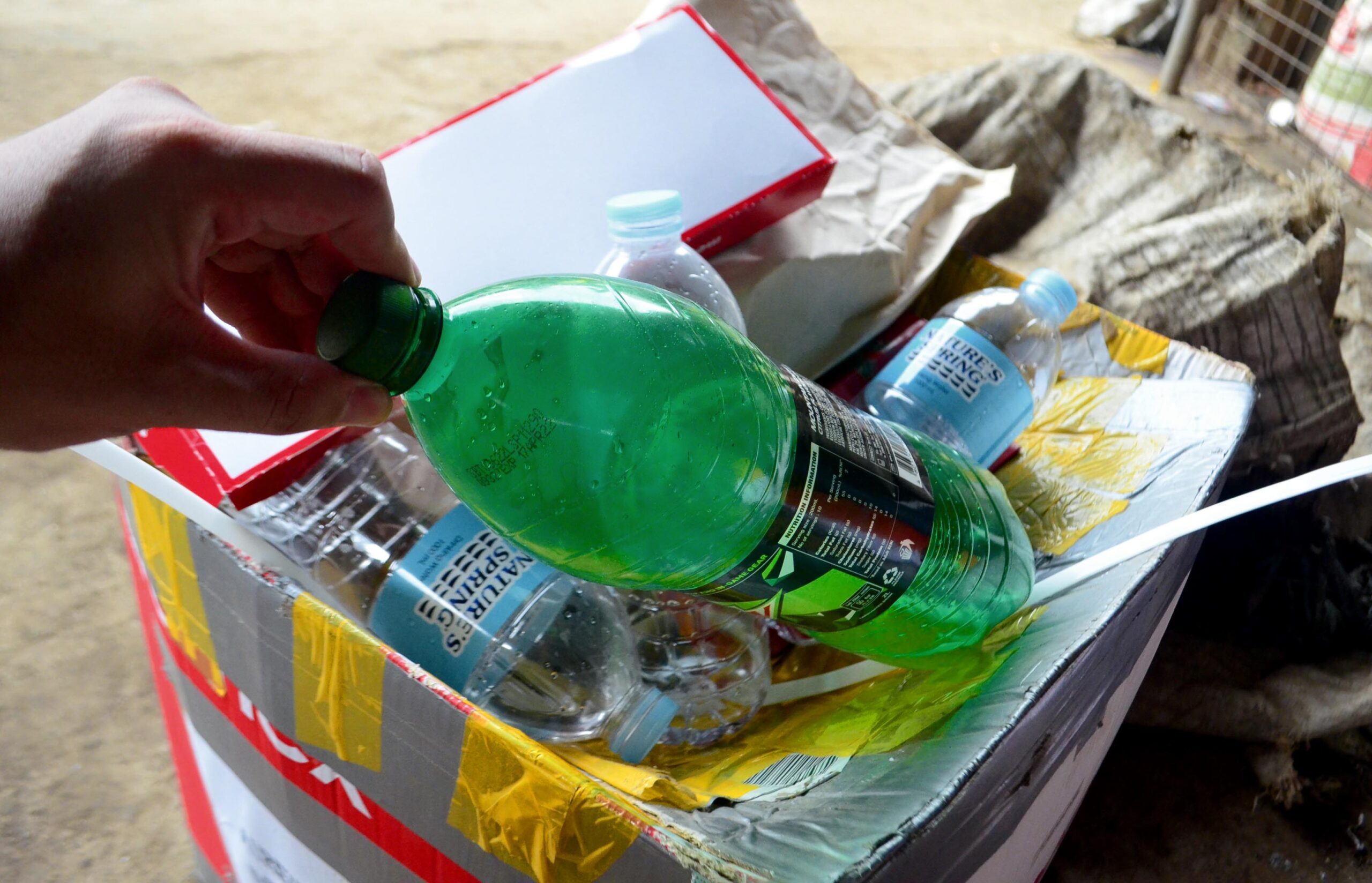
MANILA, Philippines – A coalition of environmental groups called on President Ferdinand Marcos Jr. to veto the Extended Producers’ Responsibility (EPR) bill that is set to lapse into law this July, citing its limitations in curbing the use of plastic and other wastes as well as its possible promotion of incineration, among others.
The Break Free from Plastic Movement on Thursday, July 14, said that while the bill is a milestone in that it’s the first amendment of the Solid Waste Management Act in two decades, its gaps are too big to stomach.
“There is that concern that it may take longer to pass another EPR bill with better provisions, but it’s vital that we stop this one first,” said Marian Ledesma, Zero Waste campaigner for Greenpeace.
EPR refers to a policy that makes companies responsible for the proper recovery, recycling, treatment, or disposal of what they produce after they are sold and consumed. The bill up for Marcos’ approval imposes this only on large companies and only for plastic packaging, not for products themselves.
The groups think the bill, which was co-authored by Senator Cynthia Villar in the upper chamber and co-authored by Camarines Sur Representative Luis Ray Villafuerte in the House, was “railroaded” and tailor-fit to accommodate the companies that use the most plastic packaging.
“When the very companies who are supposed to be the target of these national laws are the ones calling for its passage and civil society organizations are the ones calling for a pause, I think it would give everyone of us a reason to doubt whether the EPR bill that is currently being considered really is meant to address the problem of plastic pollution, or is it meant to provide businesses with a way to continue with business as usual,” said Froilan Grate of the Global Alliance for Incinerator Alternatives Asia Pacific.
The proposed measure requires these companies to recover a growing percentage of plastic packaging waste they generate so that they don’t end up in landfills. Starting December 2023, they are to recover 10% of their plastic waste footprint until they reach an 80% recovery rate in December 2030.
Companies must also register their EPR programs with the government, which include listing down their type of packaging and plans to recycle or reuse them, phasing out of certain types of packaging, possible redesign of products, and schemes to adopt alternative product delivery systems such as refilling.
Penalties range from P5 million to P20 million, but this is only for non-registration of EPR programs or for failure to live up to the yearly recovery rate.
Limited impact?
The coalition identified the following “gaps” in the bill:
- It covers only plastic packaging (such as sachets, bottles, bags, etc.) as the material to be the focus of companies’ EPR schemes and not the products. This means products such as electronics aren’t covered.
- Only companies with total assets worth P1 billion or more are required to have EPR schemes. Medium, small, and microenterprises are not covered.
- Time-bound targets are only for collection or recovery of plastic packaging waste and not for other solutions such as a shift to the refill model of selling goods, recycling, reusing, and redesigning products or packaging themselves to make them use less plastic or other materials.
- Vagueness of provisions leaves room for interpretation that pollutive technologies such as incineration, pyrolysis, or waste-to-fuel can be used for the “treatment” or “processing” of plastic packaging waste.
The fear about incineration, pyrolysis (decomposition brought about by high temperatures), and thermal treatment comes from the use of the term “treatment” in the bill’s definition of EPR and “processing” in Section 44-A.
“‘Processing’ in waste management lingo means changing the physical, biological, and chemical properties of the waste, and that includes incineration, waste-to-energy, and chemical recycling,” Grate told Rappler.
Without a categorical prohibition in the bill on the burning of plastic waste, the environmental groups fear companies will turn to these methods to achieve “plastic neutrality.”
Glenn Paraso, executive director of Mary Johnston Hospital Inc., was asked by the group to speak on plastic burning’s health impacts.
He echoed studies that showed incineration of plastic releases toxic substances such as dioxins, furans, mercury, and polychlorinated biphenyls into the atmosphere.
“When you burn these substances, it will affect the immune system, sensory organs, and liver and kidneys,” he said.
‘Improvements’ sought
The group had sent their position paper to various legislators in November 2021 to state their reservations about the bill.
They prefer a nationwide ban on single-use plastics, a measure which has been implemented already by several local governments.
For them, the EPR bill ready for Marcos’ signature is a wasted opportunity if not amended to also set targets on an “upstream” approach instead of just the “downstream” side.
“Downstream” means measures taken after the product is used by the consumer to make sure it doesn’t end up in a landfill, such as recycling and reusing. “Upstream” refers to measures taken before a product is used to reduce waste, such as redesigning a product entirely or changing the material it’s made of to make it reusable, recyclable, or biodegradable.
The group presented elements of a “stronger” EPR scheme which, if included in a new EPR bill, would make it more acceptable to them.
Apart from the aforementioned “upstream” measures and time-bound targets for recycling and reusing, Miko Aliño of Break Free From Plastic suggested the imposition of eco-modulated EPR fees, greater involvement of the informal waste sector (such as garbage collectors or waste pickers), and a “packaging register” where companies list down their packaging materials in a database for the public to see.
Eco-modulated EPR fees mean the imposition of higher fees on the producer for the use of material that is less likely to be reused. Fees would be smaller for more environment-friendly materials and higher for disposable materials. The scheme is supposed to incentivize companies to use more eco-friendly materials.
Malacañang is yet to release any update on the EPR bill. – Rappler.com
Add a comment
How does this make you feel?
![[EXPLAINER] Plastic sachets: As big brands cashed in, a waste crisis spiraled](https://www.rappler.com/tachyon/2022/06/sarisari_GLOBAL-PLASTIC-UNILEVER.jpg?fit=449%2C449)


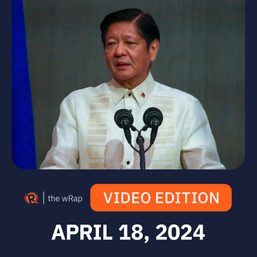

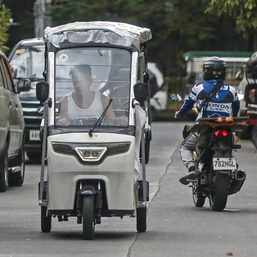

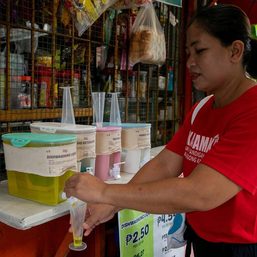
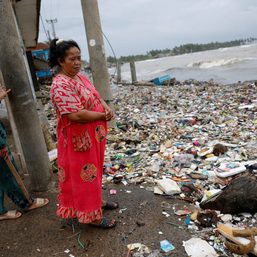
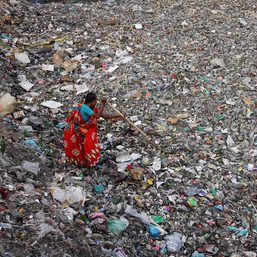
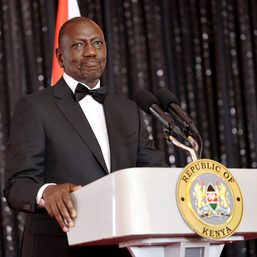
There are no comments yet. Add your comment to start the conversation.